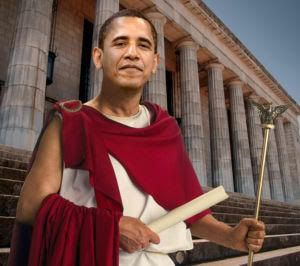Author's posts
Feb 02 2011
A Warning To The US Government
“A revolution is coming – a revolution which will be peaceful if we are wise enough; compassionate if we care enough; successful if we are fortunate enough – but a revolution which is coming whether we will it or not. We can affect its character; we cannot alter its inevitability.” — Robert F. Kennedy
Posted to YouTube January 31, 2011 by user NewWorldKnowing
We are Anonymous – We are legion – We do not forgive – We do not forget – Expect us
–A n o n y m o u s
Jan 30 2011
Paul Jay: Two Scenarios for the People and the Army in Egypt: Interview with Mohammed Ezzeldin
Paul Jay of The Real News Network talks with Egyptian Activist Mohammed Ezzeldin, a graduate of Cairo University (B.A. in political science). Ezzeldin is studying for his master’s degree in history at Georgetown University. This video was released by The Real News on 29 January 2011. The text below the video is an edited partial transcript of the interview.
Real News Network – January 29, 2011
The Egyptian Army And The Uprising
Mohammed Ezzeldin: The Egyptian people trust the army over the police,
but Mubarak is still commander-in-chief
Paul Jay: Yeah, we think it’s $1.3 billion of American aid, although do we know if that’s all goes to the military? Or does some of that go to the police?
Mohammed Ezzeldin: Most of them go to the military, I guess. But, you know, the budget of the military and the budget of the police are not discussed, and they are not publicly published or even discussed in the Parliament. So I don’t have clear information about it. But what I’m sure about: that these bilateral talks actually are going to ensure one thing that the United States and the Pentagon and the White House, of course, are interested in, which is the security of Israel. The indecisive situations and positions taken by Hillary Clinton and President Obama in the last two days actually shows one thing, one clear thing, to be frank: that the United States is not interested in any democracy or grassroots democracy or program of democracy in Egypt. Their main concern is the security of Israel — and other things, but this is their main concern, okay?
Paul Jay: The Egyptian army, given that it gets $1.3 billion a year — that’s a lot of money and it buys you a lot of generals — the Pentagon must have a lot of influence inside the Egyptian army.
Mohammed Ezzeldin: I don’t know, but maybe. We can expect a lot of things. But what actually was clear today from Mubarak’s speech: he’s completely consolidated and supported by the army.
Paul Jay: He didn’t look like someone afraid that he might have to get on a plane.
Mohammed Ezzeldin: Yeah, he was completely confident and completely unaffected and disconnected from reality. What happened actually made many people feel in the streets that the army . . . might play a role in suppressing Egypt’s road to democratization.
Paul Jay: And if they do that, it’s hard to believe they would do that without some kind of green light from the Pentagon here in Washington.
Mohammed Ezzeldin: I guess so. I believe so.
Jan 30 2011
Egypt, Jordan, and Fear Based US Foreign Policy
| So here I sit to face That same old fire place Gettin’ ready for the same old explosion Goin’ through my mind And soon enough time will tell, About the circus in the wishing well And someone who will buy and sell for me Someone to toll my bell — Jimi Hendrix, Burning of the Midnight Lamp |
In 1991 Sheldon L. Richman at The CATO Institute virtually gave away the US Foreign Policy game for anyone who hadn’t already seen through the long years of the “spreading freedom and democracy” smoke and mirror show emanating from every US administration since Eisenhower’s warning about the Military Industrial Complex, in a long and very detailed policy analysis article titled “Ancient History”: U.S. Conduct in the Middle East Since World War II and the Folly of Intervention:
After 70 years of broken Western promises regarding Arab independence, it should not be surprising that the West is viewed with suspicion and hostility by the populations (as opposed to some of the political regimes) of the Middle East.[3] The United States, as the heir to British imperialism in the region, has been a frequent object of suspicion. Since the end of World War II, the United States, like the European colonial powers before it, has been unable to resist becoming entangled in the region’s political conflicts. Driven by a desire to keep the vast oil reserves in hands friendly to the United States, a wish to keep out potential rivals (such as the Soviet Union), opposition to neutrality in the cold war, and domestic political considerations, the United States has compiled a record of tragedy in the Middle East.
[snip]
If the chief natural resource of the Middle East were bananas, the region would not have attracted the attention of U.S. policymakers as it has for decades. Americans became interested in the oil riches of the region in the 1920s, and two U.S. companies, Standard Oil of California and Texaco, won the first concession to explore for oil in Saudi Arabia in the 1930s. They discovered oil there in 1938, just after Standard Oil of California found it in Bahrain. The same year Gulf Oil (along with its British partner Anglo-Persian Oil) found oil in Kuwait. During and after World War II, the region became a primary object of U.S. foreign policy. It was then that policymakers realized that the Middle East was “a stupendous source of strategic power, and one of the greatest material prizes in world history.“[4]Subsequently, as a result of cooperation between the U.S. government and several American oil companies, the United States replaced Great Britain as the chief Western power in the region.[5] In Iran and Saudi Arabia, American gains were British (and French) losses.[6] Originally, the dominant American oil interests had had limited access to Iraqi oil only (through the Iraq Petroleum Company, under the 1928 Red Line Agreement). In 1946, however, Standard Oil of New Jersey and Mobil Oil Corp., seeing the irresistible opportunities in Saudi Arabia, had the agreement voided.[7] When the awakening countries of the Middle East asserted control over their oil resources, the United States found ways to protect its access to the oil. Nearly everything the United States has done in the Middle East can be understood as contributing to the protection of its long-term access to Middle Eastern oil and, through that control, Washington’s claim to world leadership. The U.S. build-up of Israel and Iran as powerful gendarmeries beholden to the United States, and U.S. aid given to “moderate,” pro-Western Arab regimes, such as those in Saudi Arabia, Kuwait, and Jordan, were intended to keep the region in friendly hands. That was always the meaning of the term “regional stability.“[8]
Jan 29 2011
What The People Need
Day by day
People
Gettin’ ready for the news
Some are happy,
Some are sad
Wo, we got to let the music play
Wo, oh yeah
What the people need
Is a way to make ’em smile
It ain’t so hard to do if you know how
Jan 24 2011
Another Long and Winding Road
Well… it’s been a long winding road with more then a few hundred potholes, speedbumps, flats, rolls, and poles hit along the way, but finally after three weeks of being buried up my eyeballs in code, there is a brand spanking new Antemedius 2.0 up live now on the web – converted from Drupal 5 to the latest stable Drupal 6.20 platform.

As the old saying goes – my head hurts, my feet stink, and I don’t love Haysoos, but for the most part – outside of a few bugs here and there that I can already see need fixing – much less than I anticipated there would be – amazingly the thing seems to actually work. And is a little faster too.
I’d really appreciate it if you’d test drive it and try out everything you can think of to make it fcuk up, and let me know if you see anything that needs repair or tuning? I’m sure you’ll find something… 😉
Jan 21 2011
Jack
He was inaugurated fifty years ago yesterday, on January 20, 1961… and he said something that day I’ve not heard from any politician since:
Finally, whether you are citizens of America or citizens of the world, ask of us here the same high standards of strength and sacrifice which we ask of you.
Jan 18 2011
Miss America: I Do Declare!
WikiLeaks ‘actually based on espionage,’ new ‘Miss America’ declares
By David Edwards
RawStory, Monday, January 17th, 2011
“Everybody’s talking about the WikiLeaks, how do we balance people’s right to know with the need for government security?” Teresa Scanlan was asked.
“You know when it came to that situation it was actually based on espionage, and when it comes to the security of our nation we have to focus on security first, and then people’s right to know,” the teen replied.
“Because it’s so important that everyone in our borders is safe, and so we can’t let things like that happen and they must be handled properly, and I think that was the case,” she added.
Video from ABC’s Miss America 2010, broadcast Jan. 1, 2010
Jan 16 2011
Revisiting The End Of The World

Neither the weary, disciplined […] soldiers, ranked along the west bank, nor the anxious, helter-skelter tribes amassing on the east bank could have been giving much thought to their place in history. But this moment of slack, this relative calm before the pandemonium to follow, gives us the chance to study the actors on both sides of this river and to look backward on what has been and forward to what will be.
…
[I]ts foundations were unassailable, sturdily sunk in a storied past and steadily built on for eleven centuries and more. There was, of course, the prophecy. Someone, usually someone in his cups, could always be counted on to bring up that old saw: the Prophecy of the Twelve Eagles, each eagle representing a century, leaving us with- stubby fingers counting out the decades in a puddle of wine- only seventy years remaining! Give or take a decade! Predictable laughter at the silliness of the whole idea. But in seventy years exactly, the empire would be gone.
[it] hardly foresaw its doom.
…
Jan 15 2011
Open Farkin Hell
 Fark I farkin hate farkin computers. The farkin things took over my life 40 years ago next year, and I farkin hate farkin computers. I especially hate farkin with them trying to farkin make them farkin do what I farkin want them to do, and it’s even farkin worse when they fark with me just as I’m getting ready to fark with them.
Fark I farkin hate farkin computers. The farkin things took over my life 40 years ago next year, and I farkin hate farkin computers. I especially hate farkin with them trying to farkin make them farkin do what I farkin want them to do, and it’s even farkin worse when they fark with me just as I’m getting ready to fark with them.
 Farkin things farkin piss me off!
Farkin things farkin piss me off!
 There’s gotta be a better farkin way. Fark. Maybe I’ll have to go back to using a farkin pencil and paper!
There’s gotta be a better farkin way. Fark. Maybe I’ll have to go back to using a farkin pencil and paper!
Jan 12 2011
The Tucson Shootings, Civility and the New Class War Zone
Real News Networks’ Paul Jay: commentary on the Tucson shootings…
Real News Network – January 12, 2011
The Tucson Shootings, Civility and the New Class War Zone
Instead of using ‘civility’ to cover up reality, how about a people’s civility intended to reveal it
Jan 11 2011
WikiLeaks’ Assange “happy about today’s outcome” After Extradition Hearing
 Following his initial extradition hearing today in Belmarsh Magistrates Court, London, WikiLeaks founder Julian Assange said he was “happy about today’s outcome” and “said the skeleton argument he and his legal team hastily produced over Christmas will be made publicly available later” reports the UK Guardian in an article published this morning.
Following his initial extradition hearing today in Belmarsh Magistrates Court, London, WikiLeaks founder Julian Assange said he was “happy about today’s outcome” and “said the skeleton argument he and his legal team hastily produced over Christmas will be made publicly available later” reports the UK Guardian in an article published this morning.
This outlines “some important issues which will be gone into in detail on 6 and 7 February”, he said, according to the Guardian.
“I would also like to say that our work with WikiLeaks continues unabated and we are stepping up our publishing for matters relating to ‘cablegate’ and other materials. This will shortly be occurring through our newspaper partners around the world, big and small newspapers and some human rights organisations.”
In today’s 10-minute session, Assange’s QC, Geoffrey Robertson, said all legal preparations are in place for a full two-day extradition hearing next month.
District judge Nicholas Evans released Assange, who spoke only to confirm his name, age and address, on conditional bail. Assange, who wore a dark suit and light-coloured shirt, listented intently as he sat behind a glass screen at the top security court.
Judge Evans also modified the terms of his bail to allow him to stay at the Frontline Club in Paddington on February 6th and 7th so he will not have far to travel for the full two-day extradition hearing in February.
His bail terms had previously required him to stay at at the home of Vaughan Smith, founder of The FrontLine Club – the journalists’ club in London where Assange had stayed before his arrest in December – since he was originally granted bail on December 16, 2010.
Assange appeared outside the court today with a public statement and was videoed by Euronews:
